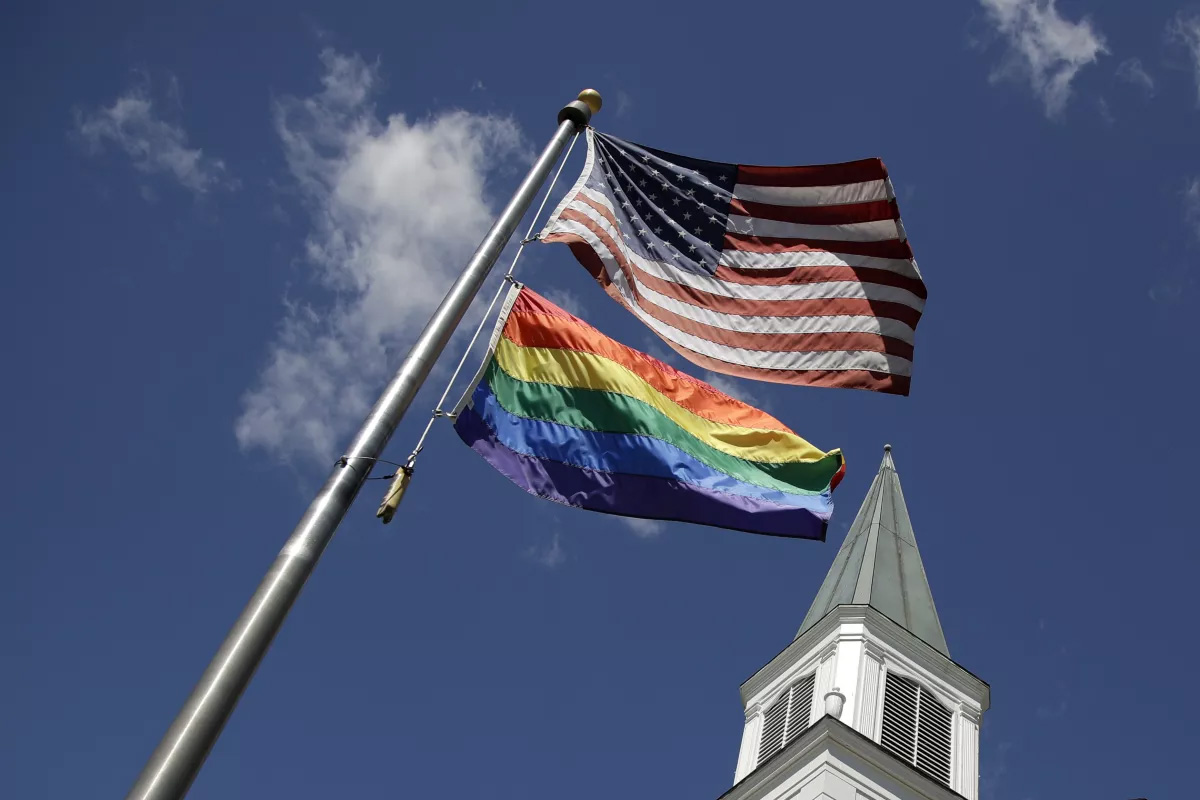
With many United Methodist Church conferences and parishes in the U.S. defying the worldwide church’s anti-queer stance, so-called orthodox, conservative parishes are leaving and forming their own denomination, the Global Methodist Church, “saying they believed the sexuality issues reflected deeper theological differences,” according to this Los Angeles Times report.
United Methodists lose one-fifth of U.S. churches over defiance of LGBTQ+ bans [Los Angeles Times – July 6, 2023]
Episco-Pals will remember this line of thinking from our schisms a generation ago. Progressives were accused of being squishy on orthodoxy — the bodily resurrection of Jesus Christ or the immaculate conception of the mother of our Lord, it was sometimes said, or unmerited grace and justification by faith. Whatever the arguments’ merits, they slyly directed the conversation away from what TEC’s critics called sex. Oh, how church reformers must have gotten tired of being accused of an obsession with sex.
But it was never about sex. It was about another cornerstone of Christian orthodoxy, imago dei, believers’ understanding that all people are made in the image of God. In the end, we are slowly but surely realizing, this includes everyone, without regard to race or nation, orientation or identification. Everyone is endowed by their creator with certain inalienable rights, among them life, liberty, and the pursuit of happiness and, in the church, if so called by the Holy Spirit, baptism and confirmation, marriage and ordination.
Christian evangelists should want the Spirit to blow as far and wide as she can. However they are made, everyone is hungry for community and welcome, for meaning and accountability, and deserving of the basic right of equal standing when they come before God to receive them. How orthodox — and how American. Imago dei is as about as deep a theological subject as there is. It’s also part of politicians’ as well as pilgrims’ progress. Recognizing the dignity of every human being as God made them, and their right to be free and thrive, is what got Enlightenment thinkers such as John Locke going, to whose thought Thomas Jefferson added his deeply imperfect understanding.
We should pray for reconciliation and peace for all involved in this latest schism, which grieves the heart of God and should grieve our hearts as well. Those who have left the Episcopal and now Methodist churches can of course call themselves whatever they want. But they’ve lost their claim on “orthodox,” and maybe even “conservative.” One can’t very well honor the church’s traditions by keeping people away from the altar of the Savior who promised to leave no one behind.
